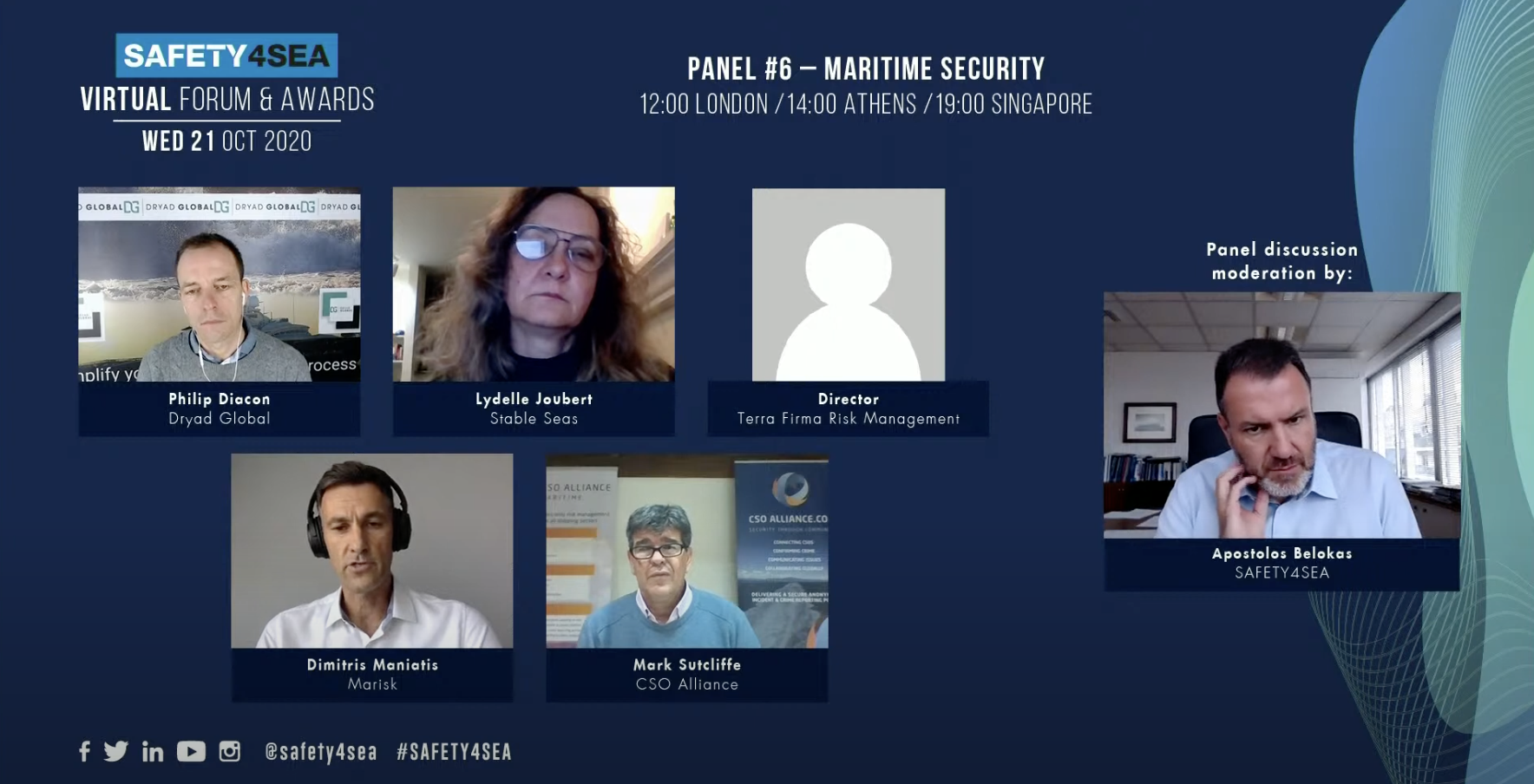The second day of the SAFETY4SEA Virtual Forum successfully concluded on October 21st focusing on the how the pandemic has affected ship safety, maritime and cyber security as well as marine insurance claims.
The pandemic may have posed new challenges to the shipping industry; however, piracy and sea robbery incidents are a persistent challenge and a significant threat, especially in high risk areas. Notably, an increase of incidents in the Singapore Strait and threat of abduction of crew in the Sulu-Celebes Seas have been identified while the Gulf of Guinea remained the area worst affected in 2019.
Panel 6 of the virtual event focused on the current security landscape, highlighting that vigilance should be always maintained even in the Indian Ocean where is now considered as a free of risk area.
Watch the full panel 6 discussion on maritime security:
Here's a summary of the main points raised by the panel of experts:
Mr. Philip Diacon, Dryad Global, Director, praised the work of fusion centres which provide detailed information and coordinate security efforts. He also noted that the last years the Indian Ocean is clear from attacks since there is no piracy attacks or threats. The industry has managed to develop a mature structure in place over there, that is why there is no tension. On the contrary, West Africa is now a high risk area, where piracy is escalating and needs extra vigilance.
Mrs. Lydelle Joubert, Stable Seas, Researcher ,mentioned that between January and September 2020, the highest number of incidents of piracy and armed robbery of ships were reported in Asia. However, incidents remained high in the Gulf of Guinea with most kidnapping incidents worldwide reported in this region. Pirate groups launch attacks from the Niger Delta. Nigerian government security measures through the Nigerian government and Industry Joint Working Group shows promise.
Director, Terra Firma Risk Management, advised to shed a focus on proper preparation when vessels transiting in the Gulf of Guinea. As such, among many, they should: conduct drills and rehearsals before their arrival; Ensure the attack emergency alarm is differentiated from other alarms; If the attack emergency alarm is sounded, all crew, less those required on the bridge or in the engine room, go to the citadel immediately, using internal routes.
Mr. Dimitris Maniatis, Marisk, CEO, highlighted the importance of the maritime security system that has been developed in the Indian Ocean; this is why we see no tension the last years. However, we have to pay a lot of attention in order to upkeep due dilligence in place and the quality of security, he pinpointed. If we look at the costs and the bigger number, there is no profits, but nonetheless the security level needs to be maintained, he concluded.
Mr. Mark Sutcliffe, CSO Alliance, Managing Director, referred to the great work of fusion centres, highlighting that communication is the key. Although a communication gap may be noticed when it comes to incidents reporting, how we use any available information is important. Nonetheless is a team effort. Concluding, he urged stakeholders to continue working effectively together, and show focus on transparency. Security provision is imperative. All crew must be allowed to go to work safely and secure; and it is our work to ensure that, he said.




